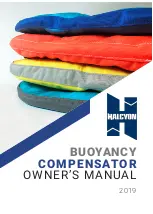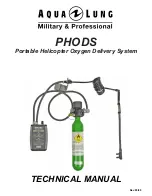
Liquiphant FTL64 with electronic insert FEL67
Design
Hauser
11
the demand mode of the safety function is not detected and the device will not switch as
intended.
Buildup from 0.5 mm (0.02 in) is detected with low diagnostic coverage.
3.4.3
Solid particles - heterogeneous mixtures (only for MIN detection)
The medium may not contain solid particles with a diameter greater than 5 mm (0.2 in). Solid
particles lodged between the tines of the tuning fork can have the effect that the demand
mode of the safety function is not detected and the device will not switch as intended.
Lodged solid particles are detected with low diagnostic coverage.
3.4.4
Wall distance
The distance between the tuning fork of the device and the wall of the vessel containing
medium (e.g. tank, pipe) must be at least 10 mm (0.39 in).
3.4.5
Corrosion
The device may only be used in media to which the wetted parts used are resistant. Corrosion
can have the effect that the demand mode of the safety function is not detected and the
device will not switch as intended.
Corrosion is detected with low diagnostic coverage.
When using coated sensors, make sure the sensor is not damaged during installation and
operation.
3.4.6
Abrasion
It is not permitted to use the device with abrasive media. The removal of material from the
sensor as a result of abrasion can result in sensor failure.
Abrasion is detected with low diagnostic coverage.
3.4.7
Flow velocity
In the case of flowing media, the flow velocity in the area around the tuning fork may not
exceed 5 m/s. Higher flow velocities can have the effect that the demand mode is not detected
and the sensor signals that it is free (uncovered).
3.4.8
External vibration
In systems exposed to strong external vibrations, e.g., in the 400 to 1
200 Hz range
(acceleration spectral density >1 (m/s²)²/Hz) or ultrasound with cavitation, the safety
function must be verified by simulating a demand mode prior to operation. Accidental
switchings may sporadically occur if a strong frequency from an external source is
superimposed on the frequency of the tuning fork.










































